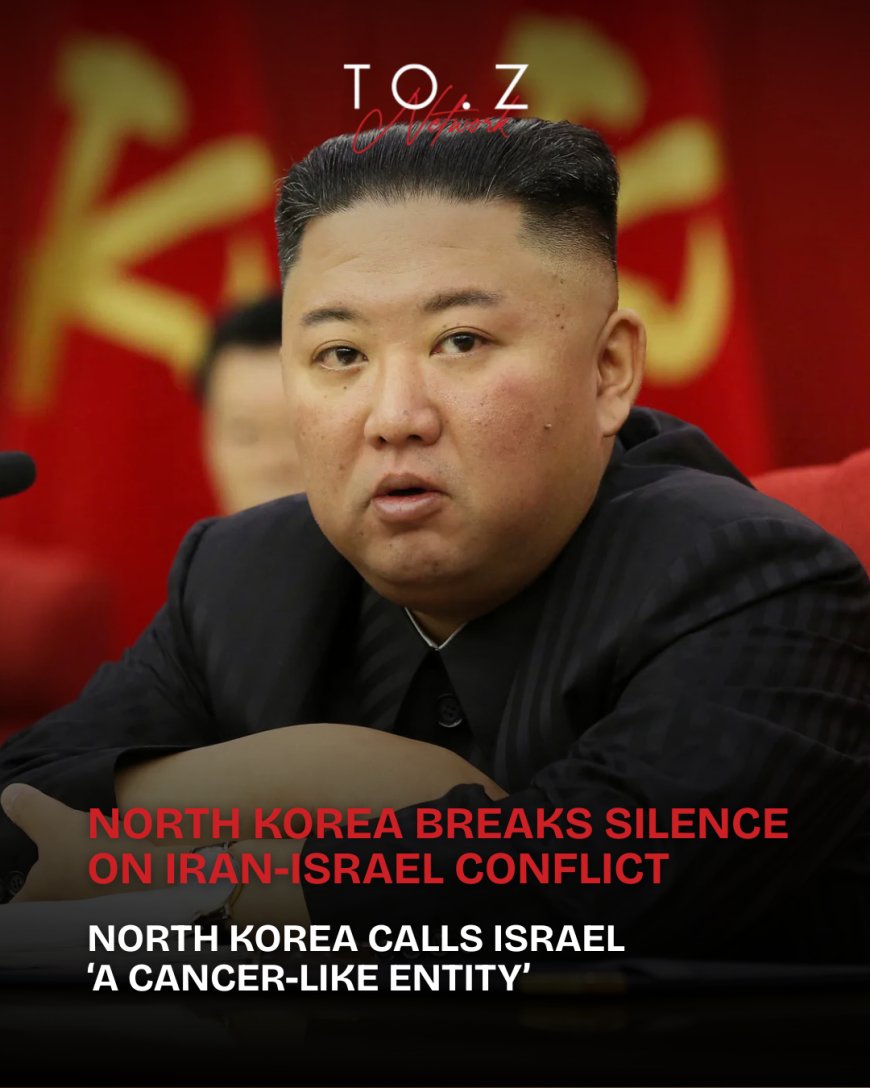North Korea Condemns Israel's Strikes on Iran as ‘Crime Against Humanity’ in Strongly Worded Statement
North Korea has condemned Israel’s attacks on Iran as a “crime against humanity” and a violation of sovereignty, calling Israel “a cancer-like entity” threatening peace in the Middle East. Pyongyang also criticized the U.S. for supporting Israel’s actions and warned of global instability. The statement highlights North Korea’s alignment with Iran and its concern over Western military actions setting a precedent for future conflicts.

In a strongly worded statement released Thursday, North Korea sharply condemned Israel's recent military strikes on Iranian nuclear facilities and top officials, calling them “a hideous act of aggression” and “an unpardonable crime against humanity.” The statement, delivered by a foreign ministry spokesperson via the state-run Korean Central News Agency (KCNA), marks Pyongyang’s first official response to the escalating conflict between Israel and Iran.
Describing Israel as “a cancer-like entity for peace in the Middle East,” North Korea’s government accused Tel Aviv of deliberately destabilizing the region through a pattern of reckless military aggression. The DPRK warned that “the Zionists who brought a new war to the Middle East and the behind-the-scenes forces who zealously patronize and support them will be held totally responsible for destroying international peace and security.”
The timing of Israel’s strikes on Iran — a sovereign nation and longstanding ally of North Korea — has drawn international concern, not only for its potential to ignite a broader regional conflict but also for its disregard of international law. North Korea’s response reflects what many global observers have already voiced: a growing alarm over the expanding footprint of Israeli military aggression, not just in Gaza and the West Bank, but now extending into Lebanon, Syria, and Iran.
While North Korea’s statement was unmistakably harsh toward Israel, its criticism of the United States — widely seen as Israel’s most powerful ally — was notably tempered. The DPRK accused Washington of “fanning the flames of war” by supporting Tel Aviv’s actions but stopped short of directly condemning U.S. military involvement, perhaps recognizing that the U.S. has not officially entered the conflict militarily.
Analysts believe North Korea’s restrained language toward the U.S. reflects a strategic calculation, particularly given the DPRK’s ongoing tensions with Washington. Hong Min, a senior researcher at the Korea Institute for National Unification (KINU), noted that Pyongyang likely avoided stronger anti-U.S. rhetoric due to the ambiguity surrounding American involvement in the strikes.
Still, the political messaging is clear: North Korea sees Israel’s aggressive behavior — supported or tolerated by Western powers — as a dangerous precedent that could one day justify similar attacks on the DPRK itself. The statement aligns with North Korea’s longstanding stance of supporting countries like Iran and Syria that challenge U.S. influence in the region.
The historical alliance between Pyongyang and Tehran, strengthened since Iran’s 1979 Islamic Revolution, has deepened in recent decades. Military cooperation between the two countries has been well documented, with Iran’s missile technology reportedly rooted in North Korean designs. Their shared defiance of Western pressure has created a bond grounded in both ideology and mutual strategic interest.
According to experts, North Korea’s leadership is closely monitoring the Iran-Israel situation not just as a geopolitical flashpoint, but as a case study in nuclear diplomacy. Observers believe Pyongyang sees Israel’s strikes as further justification for its own nuclear arsenal — a deterrent it views as essential for regime survival in the face of potential Western aggression.
As the world grapples with the rising instability in the Middle East, North Korea’s statement stands as a vocal denunciation of what it frames as unchecked Israeli militarism — a charge that resonates with many critics of Tel Aviv’s foreign policy. Whether this latest condemnation will influence global discourse or simply serve as another rhetorical salvo remains to be seen. However, what is certain is that the fallout from these strikes is reverberating far beyond the region — and raising red flags in capitals across the globe.









